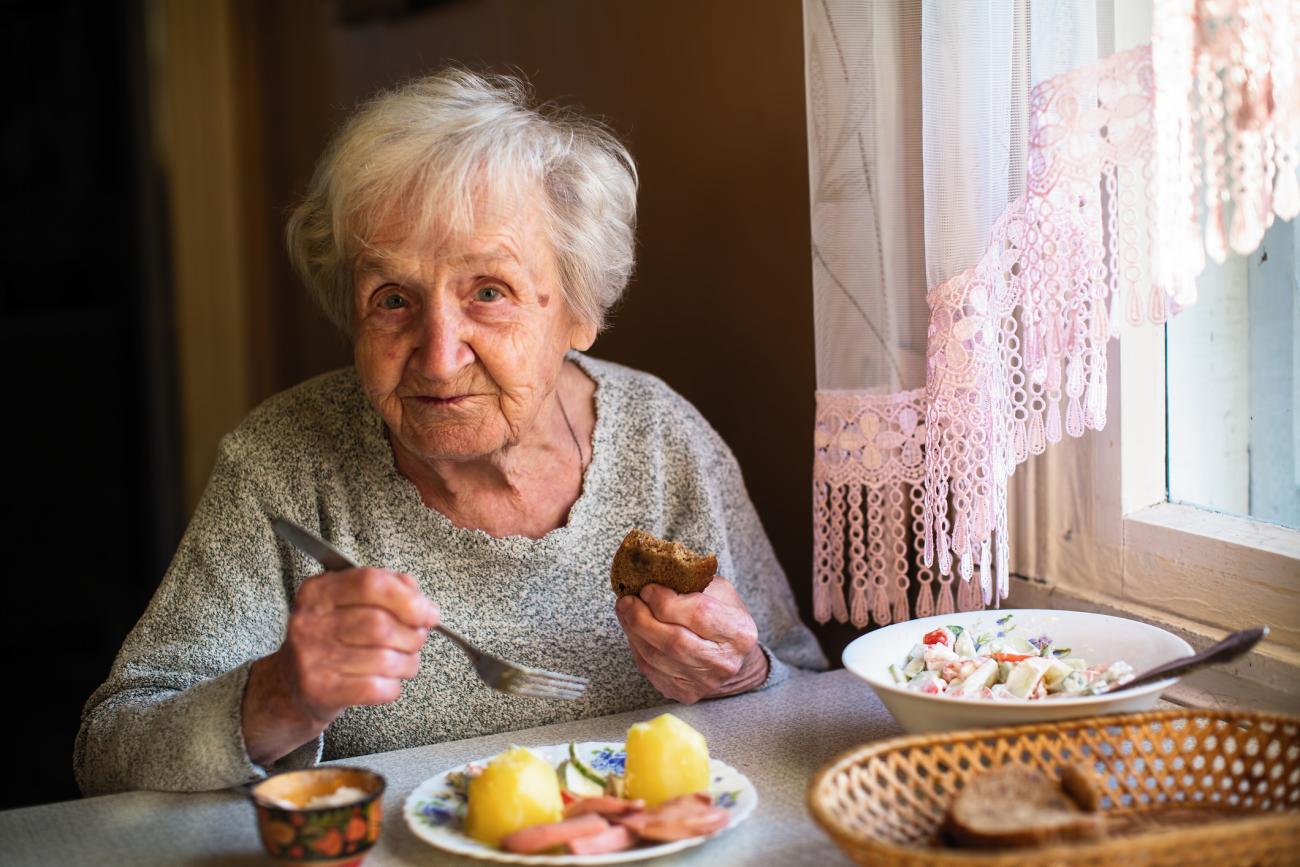
Malnutrition is high among seniors referred to home care service from hospital, but a rapid screening test could turn the tide.
Malnutrition puts older adults at greater risk of hospital readmission from consequential injuries such as falls, fractures and infections, as well as being a risk factor for death. Vancouver Coastal Health Research Institute (VCHRI) researcher Leila Goharian’s research is the first in Canada to describe the prevalence of malnutrition among older adults newly referred to home care services from hospitals in British Columbia.

Goharian’s study clearly underscores the importance of screening for malnutrition as an effective and proactive intervention to prevent its health impacts from spiraling out of control.
“A person may become malnourished as a result of barriers to adequate food intake related to dementia, depression, chronic diseases, medications, poverty and food insecurity, among other reasons,” Goharian explains. “Early interventions can save a life.”
“Around one in three older adults over the age of 65 face obstacles to meeting their dietary nutritional needs.”
Goharian’s research examined the chart records of patients referred from hospital to Vancouver Coastal Health (VCH) home care services in B.C. that offered care through an out-of-hospital ambulatory clinic or within a client’s home between January and December 2019. “The goal of home care services is to help restore, maintain or provide palliative care to ensure clients will achieve the most efficient use of resources while maintaining a safe, optimal level of care at home,” notes Goharian.
Of the 1,537 clients included in the study, the research team found that around 25 per cent (377 individuals) were malnourished, approximately 55 per cent (848 individuals) were at risk of malnutrition and just over 20 per cent (312 individuals) had normal nutrition status.

The research team also looked at a subset of 324 clients who received an unplanned referral to hospital within 30 days of being discharged from hospital. Of these, 29 per cent (110 individuals) were identified as being malnourished, 21 percent (179 individuals) were at risk of malnutrition and 11 per cent (35 individuals) had normal nutrition.
“The estimated risk of hospital readmission for malnourished and at risk of malnutrition clients was 2.7 and 1.9 times higher, respectively, than that of clients with normal nutrition status.”
“Malnutrition can be a gradual or rapid process that can be very time-sensitive and challenging to address,” explains Goharian. “Its effects can lead to increased frailty and an over 50 per cent higher risk of falls due to deficiencies in nutrients causing muscle breakdown and brittle bones.”
Rapid identification of malnutrition with a short questionnaire
In 2018, VCH home and community care services began using the validated nutrition screening tool — the Mini Nutritional Assessment–Short Form (MNA‐SF) — which was also used by the home care services included in Goharian’s study to assess the nutritional status of clients. The six-question, shorter version of the Mini Nutritional Assessment questionnaire identifies whether an older adult over the age of 65 years is malnourished or at risk of malnutrition.
"When we use effective malnutrition screening tools, we are better equipped to identify individuals who are either malnourished or at risk of malnutrition, regardless of the causes of the malnutrition.”
MNA‐SF questions range from checking a person’s weight loss within the past three months to their food intake, mobility, mood and cognitive function. “The screening tool is designed to be completed by the client or their caregiver for a person-centred approach,” Goharian explains. “However, when needed, some questions can be informed by details from a client’s medical record.”
See a role play video on how to use the MNA screening tool in two different scenarios:
Across VCH, individuals identified as being malnourished are often referred to a registered dietitian for timely nutrition intervention. Dietitians can assist clients by tailoring a nutrition care plan to clients’ unique dietary needs — including cultural and personal needs — medical history, mobility and other considerations.
"In Canada, hospital care costs for patients with malnutrition are between $1,500 and $2,000 more than for well‐nourished patients.”
“By implementing the MNA‐SF across VCH, we can help to mitigate the negative implications associated with malnutrition,” says Goharian. “The benefits of screening include decreased hospital readmission rates, length of stay, mortality and morbidity, as well as increased overall satisfactory care experiences for clients and their families.”


